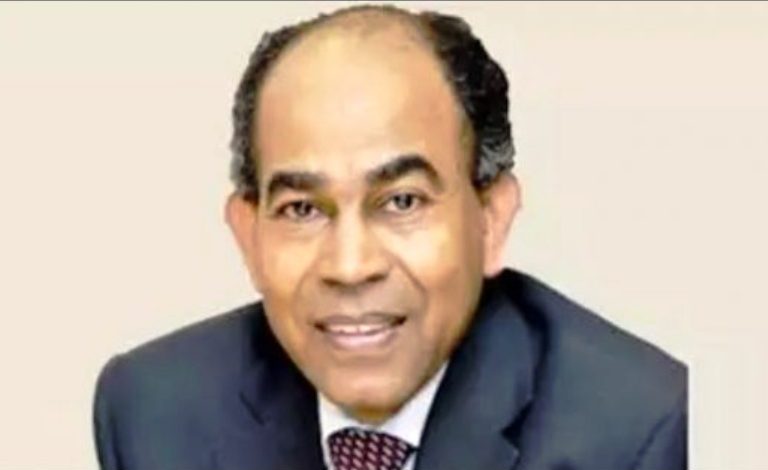Opinion
The Conspiracy of Demographic Change in Sudan

Othman Mirghani
One of the largely overlooked aspects of the ongoing war in Sudan, despite its seriousness, is the plan to create demographic change in the country, particularly in the west. This scheme is closely linked to the dream of establishing a state for the Arab diaspora in Africa. I, along with a few others, have written about this issue, and some army leaders have spoken about the larger plan targeting Sudan in this war. However, this does not seem sufficient to bring the subject into the necessary focus, nor to continuously warn of its dangers and the importance of confronting and thwarting it.
I was struck by a report published by Sudan Tribune titled, “The Sudanese Fur Tribe Rejects the Establishment of a New Emirate in Central Darfur Supported by the Rapid Support Forces.” The report cites leaders from the Fur tribe, which is one of the long-established components in the west of the country, firmly rejecting and strongly protesting after the Rapid Support Forces organized a celebration to announce the establishment of what was called the “Emirate of Awlad Baraka and Mubarak.” As stated in the report, this group is a branch of the Arab Salamat tribe that recently arrived from the Central African Republic near the border with Sudan. This influx occurred under the current conditions of war, which have brought in large numbers of mercenaries who joined the Rapid Support Forces.
In the context of their strong rejection of this step, a community leader from the Fur stated that they view the situation as “occupation” of their lands by incoming groups and as part of a series of attempts to effect demographic change in Central Darfur and other areas of the region.
What confirms this statement is a video clip broadcasted by the Rapid Support Forces during the celebration of the establishment of this “emirate,” showing a large banner raised behind one of their leaders as he addressed the occasion, stating, “The First Founding Conference for the Formation of the Emirate of Awlad Baraka and Mubarak, for Coexistence and Familiarity with the Components of the State.” The banner implicitly acknowledges that these newcomers are strangers who need “to become acquainted and coexist” with the true landowners of the state.
The outcry from the Fur leaders against this “emirate” indicates the encroaching danger as the Rapid Support Forces create new local administrations in several areas under their control during the war to parallel and compete with the historical and established local administrations. Additionally, there have been extensive displacement operations, including burning villages, killing their sons, raping their daughters, and committing horrific ethnic massacres, many of which are documented in an indisputable manner. These actions to force demographic change represent a significant danger and directly contribute to the promotion of a project to establish a state for the Arab diaspora in the Darfur region, and possibly parts of Kordofan and other areas, if the dreamers and greedy can implement their plans.
It is no longer a secret that since the outbreak of the current war, groups from neighboring African countries such as Chad, the Central African Republic, Niger, and others have begun to recruit their citizens to fight alongside the Rapid Support Forces. Politicians and activists from Chad, in particular, have emerged to promote the idea that the Sudanese war represents an opportunity to realize the dream of establishing an independent entity that gathers the Arab diaspora scattered across several countries.
The scale of this mobilization is evidenced by the fact that tens of thousands of recruits and mercenaries from Chad, the Central African Republic, Niger, and even Mali have been killed in ongoing battles with the Sudanese army in various regions from Darfur to Khartoum and the Al-Jazeera state, after the Rapid Support Forces managed to expand into vast areas. Just yesterday, several news outlets reported that the opposition National Movement in Chad stated that around 13,000 Chadian youths had been killed in the war in Sudan in just two months, after influential figures recruited them along with thousands of others and pushed them to fight alongside the Rapid Support Forces.
In this context, the commander of the Rapid Support Forces, Mohamed Hamdan Dagalo (Hemedti), when he called in a speech broadcast last week for the recruitment of a million people into his forces, following recent defeats on several fronts, was not only addressing his social base within Sudan—of which not all are aligned with his war—but he was also addressing those beyond the borders who sympathize with him based on ethnic ties or who support the project of an Arab diaspora state.
The current war is fraught with many complexities and obscured in some aspects due to the atmosphere of severe polarization and intense media clashes, which often distract from the serious dangers of the conspiracy facing Sudan and the ambitions of some in its land and resources, and the attempt to swallow or divide it if their hidden plans succeed amidst the dust of war.



